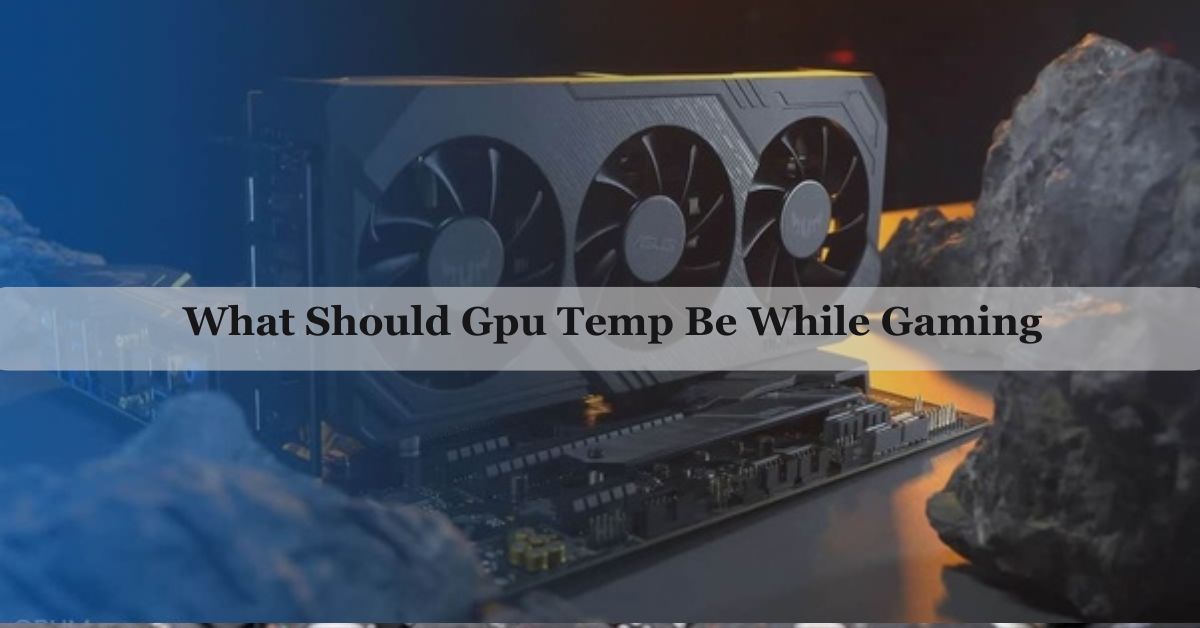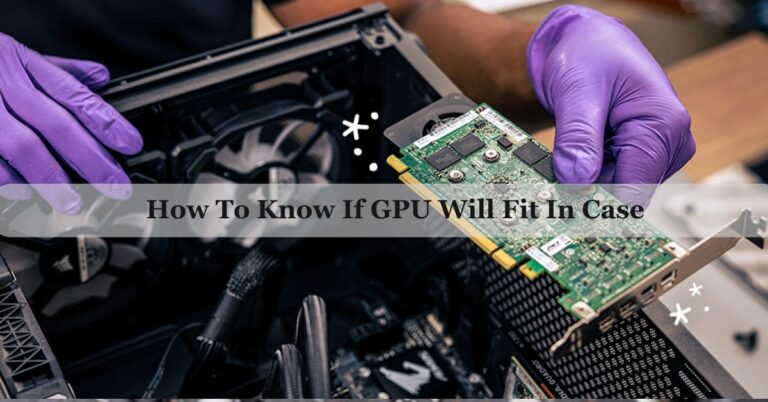What Should Gpu Temp Be While Gaming – Upgrade Your Knowledge!
I used to worry about what should GPU temp be while gaming, but after cleaning my PC and improving airflow, my GPU now stays safely between 60°C and 75°C. This has made my gaming experience smoother and stress-free.
What should GPU temp be while gaming? Ideally, it should be between 60°C and 85°C. Temperatures up to 90°C are okay, but keeping it lower helps ensure better performance and longer GPU life. Regularly monitor and manage cooling to maintain these temperatures.
Curious about the ideal GPU temperatures for gaming? Discover everything you need to know in our detailed guide on **What Should GPU Temp Be While Gaming** to keep your system running smoothly!
Is 80 C Hot For Gpu?
80°C is on the warmer side for a GPU, but it’s not necessarily too hot. Most GPUs can handle temperatures up to 85°C to 90°C during heavy use, like gaming. However, if your GPU stays around 80°C often, it’s a good idea to check your cooling system.
Make sure fans are working well, there’s good airflow in your PC case, and the GPU isn’t overloaded. Keeping temperatures lower helps your GPU perform better and last longer.
Is 85 Degrees Hot For Gpu While Gaming?
85°C is too hot but still acceptable for a GPU while gaming. Most GPUs are designed to handle temperatures up to 85°C without problems. However, if your GPU reaches 85°C regularly, you might want to improve cooling. Check your PC’s airflow, clean dust from fans, and consider better cooling solutions. Keeping temperatures lower can help your GPU perform better and last longer.
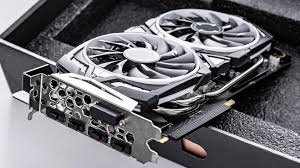
Is A 40 Degrees Gpu Normal?
Yes, a 40°C GPU is perfectly normal and even cool. When your GPU is idle or not doing much, temperatures around 40°C are very good. It shows that your cooling system is working well and that your GPU is not under heavy load. Keeping your GPU at this cool temperature can help it stay healthy and perform well for a long time.
What Is The Normal Temperature For Gpu While Gaming?
The normal temperature for a GPU while gaming is usually between 60°C and 85°C. If your GPU stays in this range, it means your cooling system is doing a good job. Temperatures above 85°C might be too high and could cause performance issues. Keeping your GPU in this range helps it run smoothly and last longer.
Should I Be Worried About My Gpu Temperature?
Yes, you should pay attention to your GPU temperature. If it consistently reaches temperatures above 85°C while gaming, it could lead to performance problems or even damage over time.
Take steps to improve cooling, such as cleaning your PC, improving airflow, or adjusting fan settings. Monitoring your GPU temperature regularly can help ensure smooth gaming and prolong your GPU’s lifespan.
What Should GPU Temp Be While Gaming?
When you are gaming, the GPU temperature should generally be between 60°C and 85°C. This range is normal and safe for most GPUs under heavy use. If your GPU gets above 85°C often, it might mean you need better cooling or airflow. Keeping your GPU within this temperature range helps it run well and last longer.
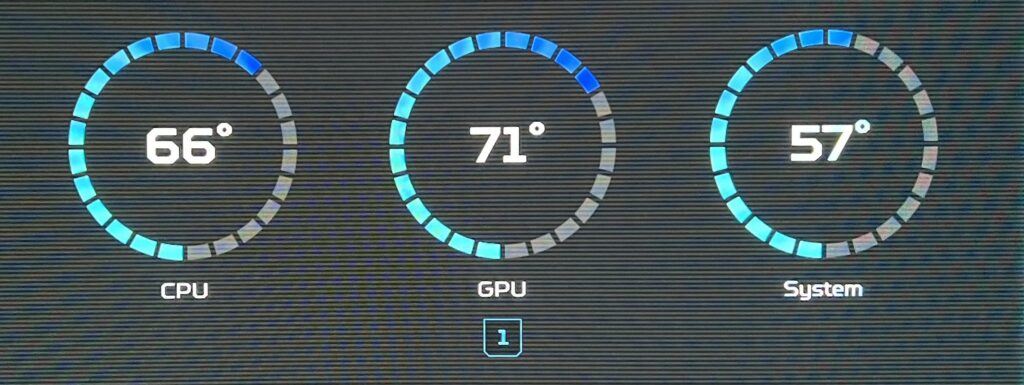
Why Does GPU Temperature Matter?
GPU temperature is crucial for several reasons, and understanding them can help you maintain your gaming system:
Performance:
When the GPU gets too hot, it can automatically lower its performance to avoid damage. This process is called thermal throttling. If your GPU temperature goes above 85°C, it might start to slow down, which means your games could run more slowly, have lower frame rates, or look worse.
Lifespan:
High temperatures can shorten the lifespan of your GPU. Over time, constant heat can damage the internal components and lead to failures. If your GPU runs too hot often, it might not last as long as it should. Regularly checking and managing your GPU temperature helps ensure that it stays in good condition for years.
System Stability:
Overheating can cause your system to crash or freeze. If the GPU gets too hot, it might cause your games or entire PC to become unstable. By monitoring temperatures and managing cooling, you can avoid these issues and keep your system running smoothly.
Power Consumption:
A hotter GPU uses more power, which can increase your electricity bill. Efficient cooling can help your GPU stay at a lower temperature, which can reduce power consumption and save you money in the long run.
Comfort:
High GPU temperatures can lead to noisy fans working harder to cool down the GPU. If you manage temperatures well, your PC will run quieter, making for a more comfortable gaming environment.
Avoiding Damage:
Excessive heat can cause permanent damage to the GPU and other computer components. Keeping your GPU within the recommended temperature range helps prevent such damage and avoids costly repairs or replacements.
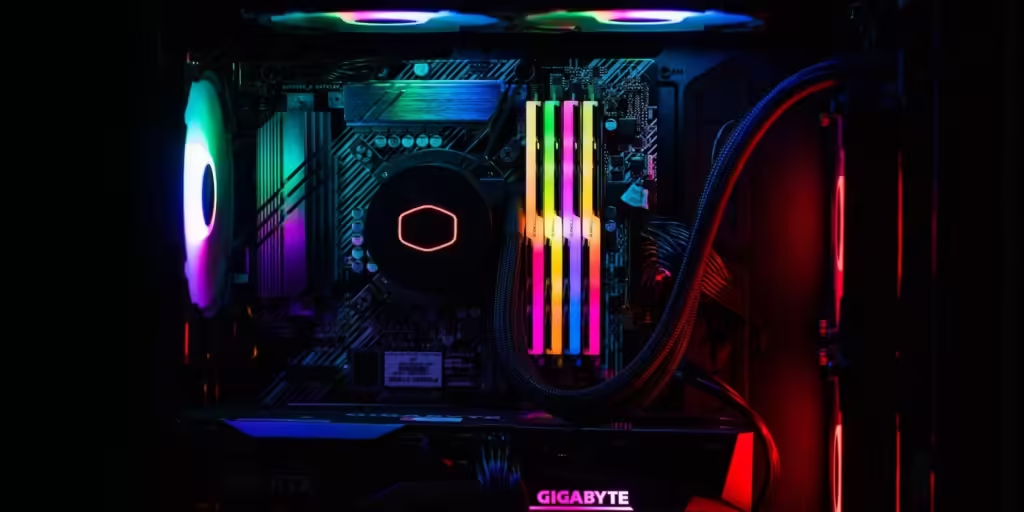
How Long Can I Play On 75 Gpu Temp?
Playing games at a GPU temperature of 75°C is generally safe for most systems. You can play for several hours without major issues, as long as this temperature doesn’t go higher. Modern GPUs are designed to handle these temperatures, but it’s still important to keep an eye on it.
If you notice the temperature rising above 75°C, consider improving airflow in your PC or checking your cooling system. Regular monitoring helps ensure your GPU performs well and lasts longer during long gaming sessions.
What Is The Optimal Cpu And Gpu Temperature For Gaming?
For gaming, the optimal temperature for a CPU is typically between 60°C and 75°C, and for a GPU, it’s between 60°C and 85°C. Keeping your CPU and GPU within these ranges ensures they run smoothly and efficiently.
If temperatures stay within these ranges, your system will perform well without slowing down or risking damage. Regularly check and manage your cooling setup to maintain these optimal temperatures, ensuring a better and longer-lasting gaming experience.
What Temperature Should My Gpu Have When Playing A Game?
When playing a game, your GPU should ideally be between 60°C and 85°C. This temperature range is normal and safe for most GPUs during gaming. Staying within this range ensures that your GPU performs well and doesn’t overheat, which helps prevent performance drops and extends the life of your hardware.
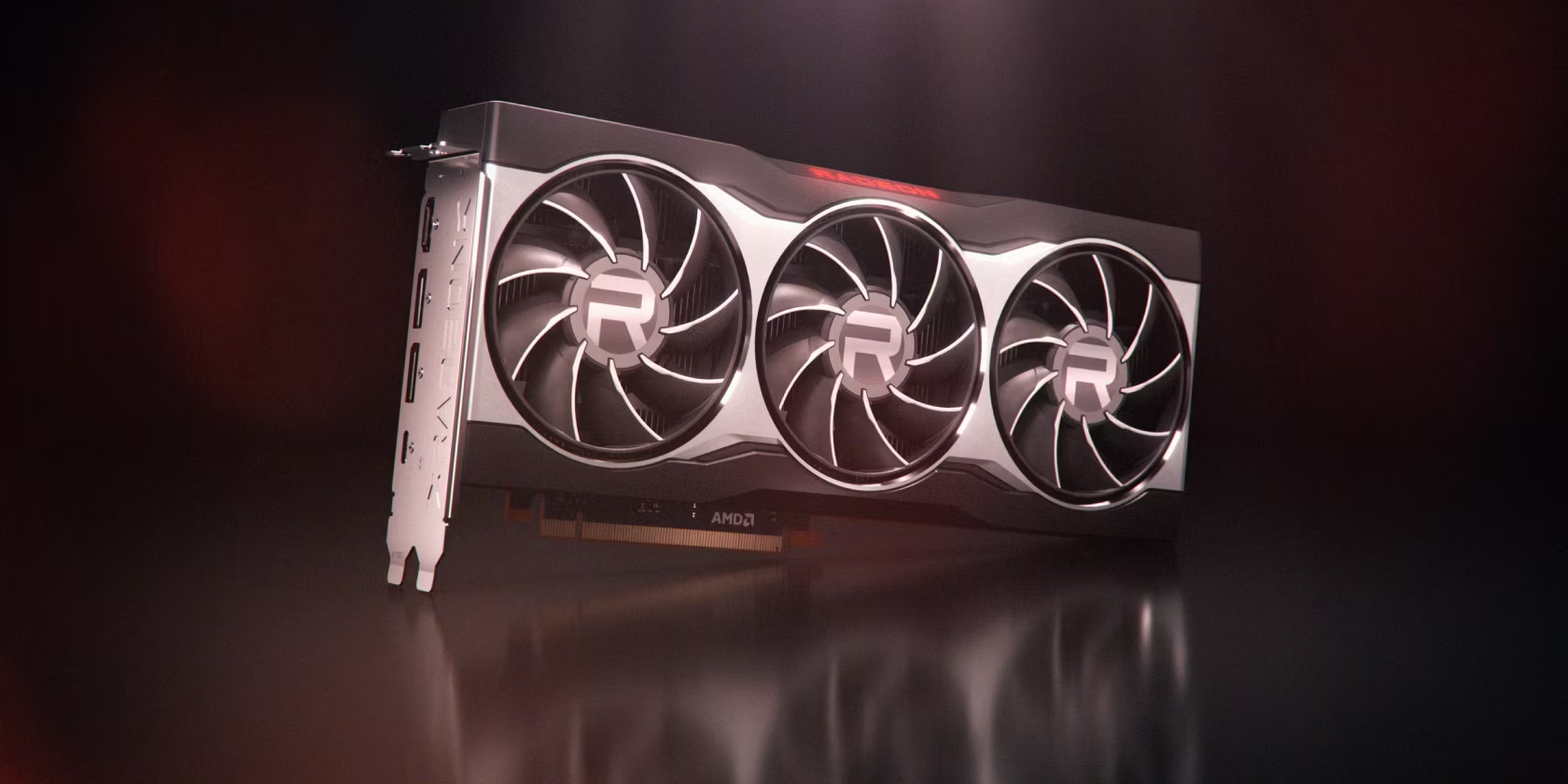
What Is The Ideal Gpu Temperature While Gaming?
The ideal GPU temperature while gaming is between 60°C and 85°C. This range is considered optimal for maintaining good performance and long-term health of your GPU. If your GPU frequently exceeds 85°C, it might indicate that your cooling system needs improvement. Keeping your GPU in this ideal range ensures a smooth gaming experience and helps prevent damage over time.
What Factors Affect Gpu Temperature?
- Cooling Solutions: The quality of your GPU’s cooling system (fans, heatsinks, liquid cooling).
- Case Airflow: Good airflow in your PC case helps keep temperatures down.
- Ambient Temperature: The room temperature where your PC is located.
- Overclocking: Running your GPU at higher speeds increases temperatures.
How To Keep Your Gpu Cool?
Improve Case Airflow:
- Add more fans or optimize their placement.
- Keep cables tidy to avoid blocking airflow.
- Regularly clean dust filters and case interior.
Clean Your PC:
- Use compressed air to dust off components.
- Clean the blades of fans and other cooling elements.
Reapply Thermal Paste:
- Over time, thermal paste can degrade.
- Reapplying can improve heat transfer between the GPU and its cooler.
Upgrade Cooling Solutions:
- Consider aftermarket coolers with better performance.
- Liquid cooling can significantly reduce temperatures.
Optimize Fan Curves:
- Use software to set fan speeds based on temperature.
- Create profiles that balance cooling and noise levels.
How to Monitor GPU Temperature?
- MSI Afterburner: Real-time monitoring and fan control.
- HWMonitor: Detailed temperature readings for all system components.
- GPU-Z: Lightweight tool for real-time GPU data.
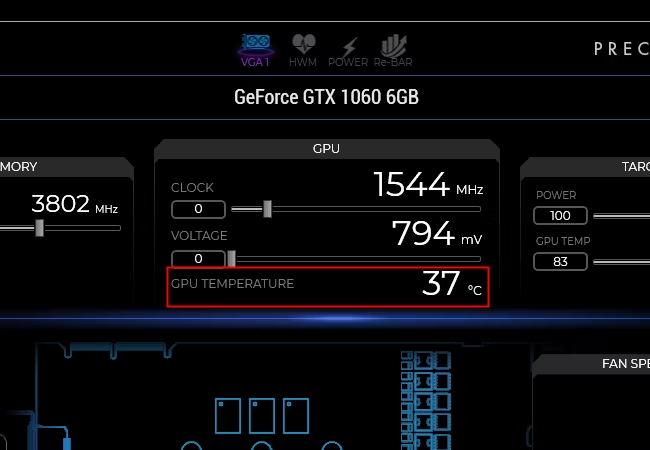
FAQs:
1. What Happens If My Gpu Gets Too Hot While Gaming?
If your GPU gets too hot, it can slow down to avoid damage, which may cause your games to lag or run poorly. Overheating can also reduce the lifespan of your GPU.
2. How Can I Lower My Gpu Temperature While Gaming?
To lower your GPU temperature, improve airflow in your PC case, clean dust from fans and components, use better cooling solutions, and ensure your room is cool.
3. Can Software Affect My Gpu Temperature While Gaming?
Yes, running demanding software or games can increase GPU temperature. Ensure your games and software are optimized and that your GPU is not overworked.
4. Is It Normal For Gpu Temperature To Rise Quickly When Gaming Starts?
Yes, it’s normal for GPU temperature to rise quickly when you start gaming, as the GPU begins working harder. The temperature should stabilize within the safe range after a few minutes.
5. Should I Use A Laptop Cooling Pad For Gaming?
Using a cooling pad for a gaming laptop can help lower GPU temperatures by improving airflow and reducing heat buildup.
6. Does Overclocking Increase Gpu Temperature?
Yes, overclocking your GPU increases its performance but also generates more heat, leading to higher temperatures. Ensure you have adequate cooling if you overclock.
7. Can Dust Affect My Gpu Temperature?
Yes, dust can block airflow and insulate heat, causing higher GPU temperatures. Regular cleaning helps maintain optimal temperatures.
8. How Can I Check My Gpu Temperature While Gaming?
You can use software like MSI Afterburner, HWMonitor, or GPU-Z to monitor your GPU temperature in real-time while gaming.
9. What Is The Safe Temperature Range For Older Gpus While Gaming?
Older GPUs may have different safe temperature ranges, but generally, keeping them below 80°C while gaming is advisable to avoid damage and performance issues.
10. Can Room Temperature Affect My Gpu Temperature?
Yes, the ambient room temperature can impact your GPU temperature. A cooler room helps keep your GPU temperature lower, while a hot room can raise it.
Final Words:
In conclusion, the ideal GPU temperature while gaming is between 60°C and 85°C. Staying within this range ensures smooth performance and a longer lifespan for your GPU. Regularly monitor your GPU temperature and maintain good cooling practices, such as cleaning your PC and improving airflow. Keeping your GPU cool helps prevent overheating and ensures a better gaming experience.

